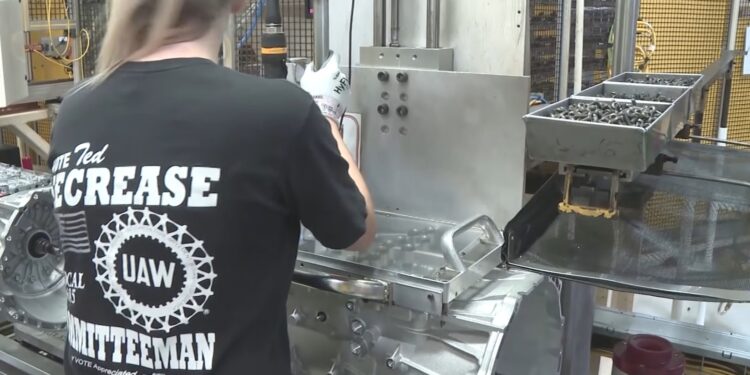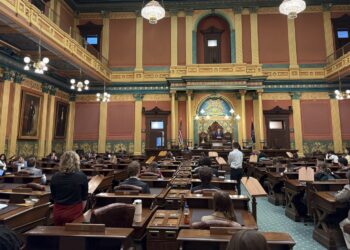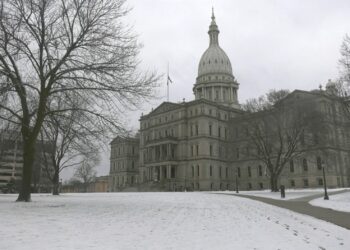LANSING, Mich. (WZMQ) – Michigan’s Labor Day celebrations come as the state revisits a debate over workers’ rights and economic competitiveness.
Michigan has long been a center of the American labor movement, with the state’s automotive industry playing a pivotal role in shaping union history.
In the 1930s, sit-down strikes by United Auto Workers (UAW) members in Flint helped establish collective bargaining rights that set the tone for labor negotiations nationwide.
For decades, Michigan’s auto plants became a symbol of union strength, securing higher wages, safer working conditions, and benefits that influenced industries far beyond car manufacturing. That legacy continues today, as labor actions in the auto sector remain a major driver of Michigan’s economic and political debates.
Last year, Democrats repealed Michigan’s Right-to-Work law, which had allowed employees in unionized workplaces to opt out of paying dues while still receiving union benefits. The repeal was hailed by labor leaders as a major victory for unions, restoring a stable flow of funding for collective bargaining and organizing.
Michigan Democratic Party Chair Curtis Hertel says the change was about fairness.
“No one’s ever forced to join a union,” Hertel said. “But if you’re getting the benefits, you should contribute to those costs. That’s just fair.”
Republicans argue otherwise. In June, Sen. Thomas Albert and GOP colleagues introduced a five-bill package that would restore Right-to-Work in the private sector, extend those provisions to public employees, and repeal prevailing wage requirements on construction, utility, and renewable energy projects. Supporters say the changes would improve Michigan’s business climate, attract investment, and give workers more freedom to decide whether to pay union dues.
Hertel says reinstating the law would undermine unions’ ability to negotiate on behalf of workers.
“What they’re really trying to do is dismantle unions, to make it harder for workers to negotiate fair wages,” Hertel said. “When unions are strong, workers get higher pay and better benefits.”
As Labor Day parades march through cities like Detroit, the state’s century-long labor legacy remains tied to its political future, with Michigan once again at the center of a national debate over workplace rights.










